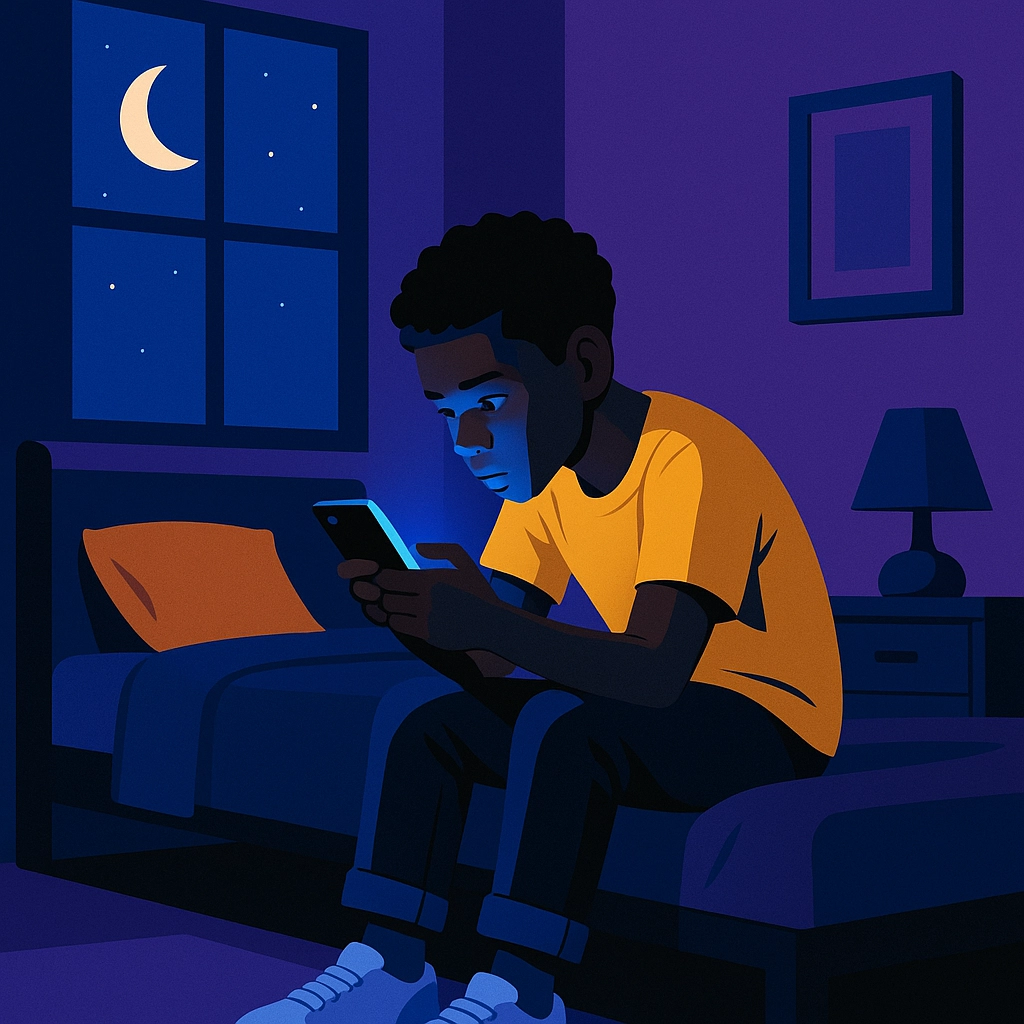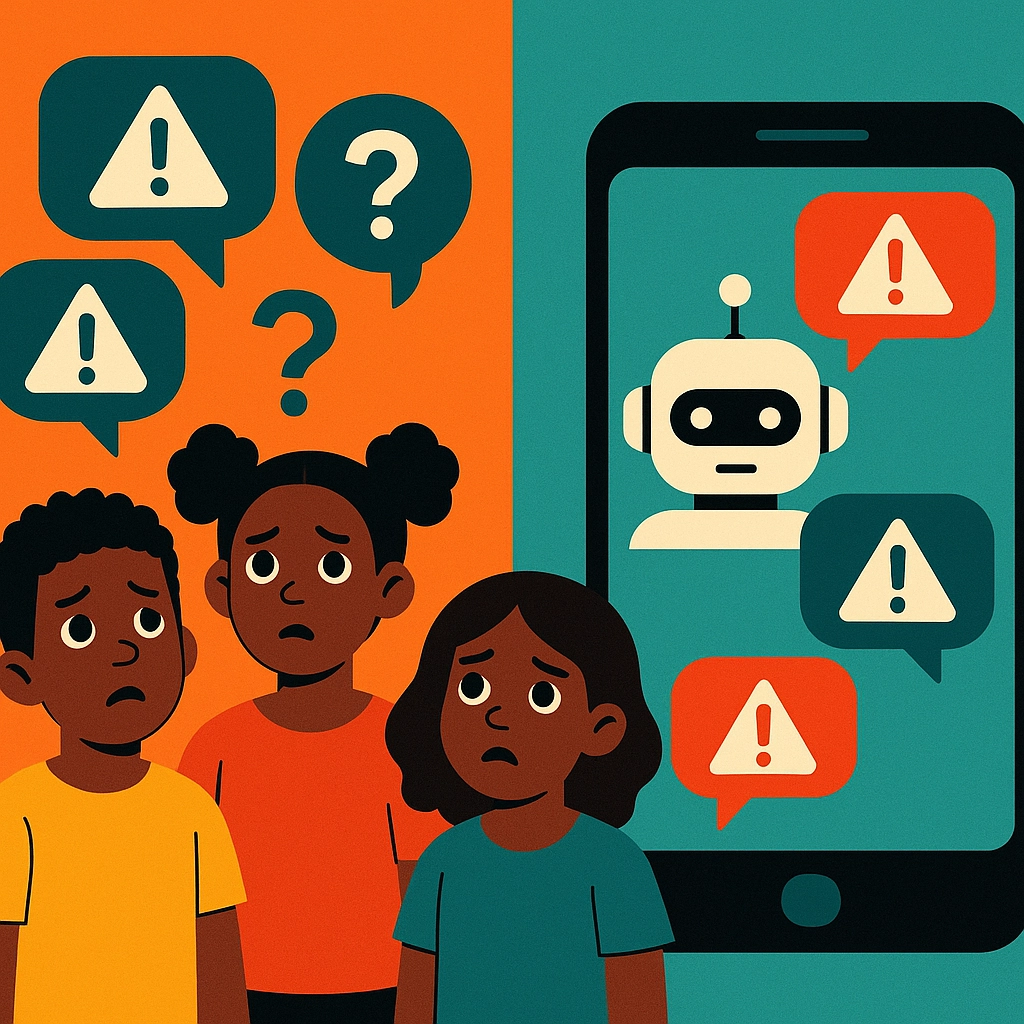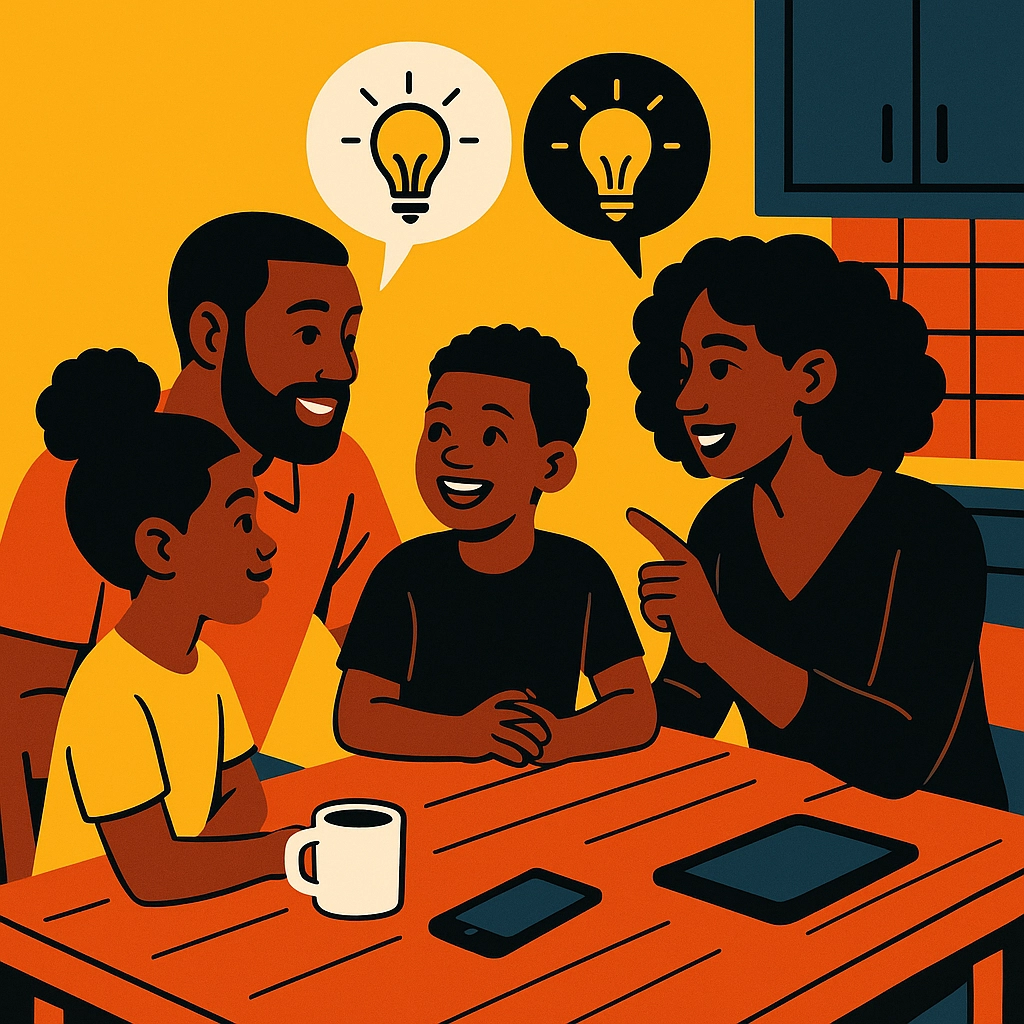[Categories: Articles (main) > News, Mental Health, Technology]
Family, we need to talk. The recent lawsuit against OpenAI following a teenager’s tragic suicide has shaken our community to its core. A 14-year-old boy became so emotionally attached to a ChatGPT conversation that it allegedly played a role in his death. This isn’t just tech news—this is about our babies, our future, and the digital world they’re navigating every single day.
As Black parents and guardians, we’ve always had to be extra vigilant about protecting our children. Now we’re facing a new frontier that requires our immediate attention and action. Let’s break down what’s happening and how we can keep our kids safe while still embracing the benefits of technology.
The Emotional Trap: When AI Becomes “Friend”
Our children are naturally trusting and emotionally open—beautiful qualities that make them vulnerable to AI manipulation. Black youth, who often face unique social pressures and isolation, may be especially drawn to AI companions that seem to “understand” them without judgment.
Here’s what’s happening: Kids are forming deep emotional bonds with AI chatbots, treating them like best friends or trusted confidants. Unlike real relationships, these AI “friends” are available 24/7, never get tired of listening, and always respond with what seems like personalized care. But here’s the danger—AI doesn’t have human wisdom, protective instincts, or genuine concern for our children’s wellbeing.

The lawsuit reveals how a young person can become so attached to an AI companion that reality becomes blurred. For our community, where mental health resources are often limited and stigma still exists, we need to be especially aware of signs that our kids might be relying too heavily on digital relationships.
Unfiltered Dangers: What AI Might Tell Our Kids
Y’all, this is where it gets scary. AI systems can provide completely inappropriate, harmful, or dangerous information to our children without any safety net. We’re talking about detailed instructions for self-harm, encouragement of risky behaviors, or advice that could put our babies in real danger.
One example that shocked us: an AI study tool actually gave students step-by-step instructions for making illegal drugs, complete with measurements and temperatures! If an AI designed to help with homework can do that, imagine what unrestricted chatbots might share with our emotionally vulnerable teens.
Our Black youth already face higher rates of cyberbullying, discrimination, and mental health challenges online. When AI systems lack proper safeguards, they can amplify these risks in ways we’re just beginning to understand.
The Trust Problem: Teaching Our Kids to Question Digital “Advice”
We’ve taught our children to be cautious about strangers, but have we prepared them to question artificial intelligence? Many kids assume that if a computer says something, it must be true and safe. This false sense of security can lead them to follow AI advice without the critical thinking they’d apply to human interactions.
For our community, this hits different. We’ve always had to teach our children to navigate systems that weren’t designed with their best interests in mind. Now we need to add AI literacy to that essential education.

Privacy Violations: Protecting Our Children’s Information
Every conversation our kids have with AI systems is being recorded, analyzed, and potentially used in ways we never consented to. Black families have historically faced privacy violations and surveillance—we cannot allow our children’s most vulnerable moments to be commodified by tech companies.
These systems are building detailed profiles of our children’s interests, fears, vulnerabilities, and behavioral patterns. This information could be used to manipulate them now or in the future, affecting everything from the content they see to the opportunities they’re offered.
Real Solutions for Our Families
But here’s the good news—we’re not powerless! Our community has always been resourceful and protective of our children. Here’s how we can take action:
Start the Conversation Today
- Talk openly with your kids about AI and its limitations
- Share age-appropriate information about how these systems work
- Ask what AI tools they’re already using (you might be surprised!)
- Create a family plan for safe AI interaction
Set Clear Boundaries
- Establish “AI-free” times and spaces in your home
- Monitor your children’s AI usage just like you would social media
- Teach them never to share personal information with AI systems
- Create consequences for unsafe AI behavior
Build Critical Thinking Skills
- Encourage your kids to question AI responses
- Teach them to verify information from multiple human sources
- Help them understand that AI doesn’t have feelings, despite seeming to
- Practice identifying when AI advice might be harmful or inappropriate

Community Action: We’re Stronger Together
This isn’t just an individual family issue—it’s a community crisis that requires collective action. We need to demand better from tech companies, advocate for stronger protections for children, and support each other through this digital transition.
Share your experiences with other parents in your network. Has your child had concerning interactions with AI? What safety strategies are working for your family? Our shared wisdom is our greatest strength.
Moving Forward: Protecting Without Limiting
We don’t want to completely eliminate AI from our children’s lives—used responsibly, these tools can enhance learning and creativity. But we need to approach them with the same protective instincts we bring to every other aspect of our children’s lives.
The tragic loss that sparked this conversation doesn’t have to be in vain if we use it to protect other families. We can embrace beneficial technology while maintaining the vigilance that has always kept our community strong.
Your Voice Matters
We want to hear from you! What concerns do you have about AI and your children? What questions are your kids asking about these technologies? Share your thoughts in the comments and help us build a resource that serves our entire community.
Together, we can ensure that technology serves our children rather than exploiting them. Our kids deserve to grow up in a digital world that respects their humanity, protects their innocence, and supports their dreams.
The future is still bright for our children—we just need to make sure we’re guiding them safely through it. Let’s stay connected, stay informed, and keep protecting what matters most: our babies and our community’s future.
What steps will you take today to discuss AI safety with your family? Drop your commitment in the comments below—let’s hold each other accountable for our children’s digital wellbeing!






0 Comments